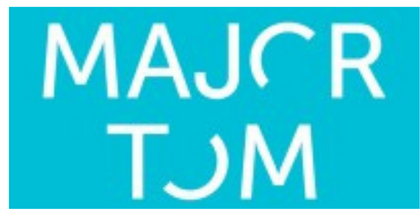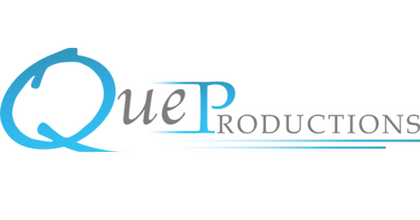
Top Metaverse Development Companies
Embark on a journey into the immersive realm of the Metaverse with our comprehensive guide to the top Metaverse development companies. Our curated list showcases industry-leading teams renowned for their expertise in creating virtual worlds, augmented reality experiences, and blockchain integration. Dive into user reviews to discover which companies excel in crafting captivating digital environments and cutting-edge technologies. Whether you’re seeking to build a virtual reality game, an augmented reality application, or a blockchain-powered Metaverse platform, our list empowers you to choose the perfect development partner to bring your vision to life.
List of the Best Metaverse Development Companies

-
Employees: 11 to 50
-
Min. Project amount: $ 25000
-
Country: USA

Vimagery
-
Employees: 11 to 50
-
Min. Project amount: $ 25000
-
Country: USA

Happy Cog
-
Employees: 51 to 200
-
Min. Project amount: $ 25000
-
Country: USA

Major Tom agency
-
Employees: 51 to 200
-
Min. Project amount: $ 25000
-
Country: USA

RL Computing
-
Employees: 2 to 10
-
Min. Project amount: $ 25000
-
Country: USA

On Board Experiential
-
Employees: 51 to 200
-
Min. Project amount: $ 25000
-
Country: USA

Lime Creative
-
Employees: 2 to 10
-
Min. Project amount: $ 25000
-
Country: USA

Sharp Think
-
Employees: 11 to 50
-
Min. Project amount: $ 25000
-
Country: USA

420MEDIA
-
Employees: 2 to 10
-
Min. Project amount: $ 25000
-
Country: USA

QUE Productions
-
Employees: 2 to 10
-
Min. Project amount: $ 25000
-
Country: USA
** Buyer's Guide **
- 1. What are the key factors to consider when choosing a Metaverse development company?
- 2. How can I evaluate the quality of a Metaverse development company's work?
- 3. What technologies and platforms do Metaverse development companies specialize in?
- 4. How do Metaverse development companies ensure compatibility and optimization across different devices and platforms?
1.What are the key factors to consider when choosing a Metaverse development company?
When selecting a Metaverse development company, consider factors such as their experience in virtual world creation, expertise in augmented reality and virtual reality technologies, proficiency in blockchain integration, track record of successful projects, and client testimonials.
Here’s an elaboration on the key factors to consider when choosing a Metaverse development company, going beyond just listing them and providing actionable tips for evaluation:
Navigating the Metaverse: Choosing the Right Development Partner
The Metaverse holds immense potential, but selecting the right development company to build your virtual world can be daunting. Here are crucial factors to prioritize when making your decision:
Experience in Virtual World Creation: Look for a company with a proven track record of building immersive and engaging virtual experiences. Request a portfolio showcasing their past projects in the Metaverse or similar virtual world environments. Evaluate the complexity, functionality, and user experience of these projects.
Tech Stack Expertise: The Metaverse is a fusion of technologies. Choose a company with deep expertise in both Augmented Reality (AR) and Virtual Reality (VR) technologies. Consider their experience with game engines like Unity or Unreal Engine, which are popular choices for Metaverse development.
Blockchain Integration Proficiency: As the Metaverse evolves, blockchain technology plays a crucial role in aspects like digital ownership and interoperability. Prioritize companies with a strong understanding of blockchain technologies and experience integrating them into their Metaverse projects.
A Track Record of Success: Don’t rely solely on promises. Ask for case studies of past successful projects. Focus on projects similar to your vision, showcasing the company’s ability to deliver on specific goals within budget and time constraints.
Client Testimonials & Reviews: Read client testimonials and reviews to gain insights into the company’s communication style, ability to meet deadlines, and overall client satisfaction.
Understanding Your Vision: Choose a company that takes the time to understand your vision for your Metaverse project. They should actively listen to your needs, ask insightful questions, and demonstrate a clear plan for translating your vision into a reality.
Beyond the Essentials:
Scalability & Future Growth: The Metaverse is constantly evolving. Consider the company’s ability to scale your project as your needs change and integrate new technologies as they emerge.
Communication & Collaboration: Effective communication throughout the development process is crucial. Choose a company with a collaborative approach, keeping you informed and involved in key decision-making moments.
Cost & Pricing Structure: Compare pricing models and ensure transparency in project costs. The cheapest option might not always be the best; prioritize value, expertise, and a clear breakdown of services offered.
Remember: Don’t hesitate to ask questions. A skilled Metaverse development company will welcome your inquiries and provide clear explanations.
By carefully evaluating these factors, you can select a development partner with the experience, technical expertise, and collaborative approach to bring your Metaverse vision to life.
2.How can I evaluate the quality of a Metaverse development company's work?
You can assess the quality of a Metaverse development company’s work by reviewing their portfolio of past projects, examining the immersive experiences they’ve created, checking client references, and exploring user feedback and reviews.
Here’s an elaboration on how to evaluate the quality of a Metaverse development company’s work, going beyond listing methods and providing actionable tips:
Demystifying Quality: Assessing a Metaverse Development Company’s Expertise
The Metaverse is a complex landscape, and choosing the right development partner requires a thorough evaluation of their capabilities. Here are key methods to assess the quality of their work:
Portfolio Power: A well-crafted portfolio speaks volumes. Request detailed information on past Metaverse projects. Look for projects similar to your vision in terms of scale, complexity, and industry. Here’s what to examine:
- Immersive Experiences: Did the company create a truly immersive and engaging virtual world? Evaluate the user experience, level of detail, and functionality within the Metaverse environments they’ve built.
- Technical Proficiency: Look for evidence of the company’s expertise in various technologies like AR, VR, blockchain integration, and game engine development.
- Focus on User Interface (UI) & User Experience (UX): A well-designed Metaverse is not just visually appealing; it should be intuitive and user-friendly to navigate. Evaluate the UI/UX design elements within the portfolio projects.
Client Reference Checks: Don’t underestimate the power of client references. Reach out to past clients of the development companies you’re considering. Ask them about their experience working with the company, the quality of the delivered project, and if they would recommend the company to others.
User Feedback & Reviews: Look for user feedback and reviews of the Metaverse experiences developed by the company. Online reviews and industry publications can offer valuable insights into the user experience and overall quality of the projects.
Beyond the Surface: Go beyond aesthetics. Ask the companies about their development process, quality assurance measures, and ongoing support options. A skilled company will have a well-defined process for ensuring quality throughout the development lifecycle.
Here are some additional points to consider:
Awards & Recognition: Has the company received any awards or recognition for their Metaverse development work? While not the sole indicator of quality, it can demonstrate industry recognition of their expertise.
Industry Involvement: Is the company actively involved in Metaverse industry events, conferences, or communities? This involvement suggests they are staying current with the latest trends and developments.
Transparency & Communication: Observe how the company communicates during the evaluation process. Are they transparent about their capabilities and limitations? Do they actively listen to your questions and concerns? Clear communication is crucial for a successful project.
By employing these evaluation methods, you can select a Metaverse development company with a proven track record of creating high-quality, immersive virtual experiences that align perfectly with your vision and exceed your expectations.
3.What technologies and platforms do Metaverse development companies specialize in?
Metaverse development companies often specialize in utilizing technologies such as virtual reality (VR), augmented reality (AR), mixed reality (MR), blockchain, 3D modeling and animation, spatial computing, and immersive user interfaces. They may also have expertise in platforms like Unity, Unreal Engine, and WebXR.
Here’s an elaboration on how Metaverse development companies typically approach project pricing, going beyond just listing billing methods and providing insights for budget planning:
Understanding the Cost Landscape: How Metaverse Development Companies Price Projects
Developing a Metaverse project is an exciting endeavor, but navigating the pricing structure of development companies can be complex. Here’s a breakdown of common billing models to help you plan your budget effectively:
Project Scope & Complexity: The core driver of cost. Larger, more intricate virtual worlds with advanced functionalities will naturally command higher fees compared to simpler Metaverse experiences. Clearly define your project scope upfront, outlining the size, complexity, and desired features of your Metaverse.
Hourly Rates: Some companies offer hourly billing rates. This provides flexibility for smaller projects or those with undefined scope. However, ensure clear communication on estimated project timelines and potential for scope creep that could lead to cost overruns. Request an estimated hourly rate upfront and inquire about minimum billable hours if applicable.
Fixed Project Fees: For well-defined projects with a clear scope of work, companies may propose a fixed fee upfront. This offers cost certainty and predictability. Ensure the fixed fee covers all anticipated deliverables and outline a change order process for any unforeseen requirements that may arise during development.
Customized Pricing Packages: Many companies offer customized pricing packages tailored to your specific needs. This might involve a combination of hourly rates and fixed fees for specific project phases. Carefully evaluate these packages to ensure they align with your project scope and budget constraints.
Additional Considerations:
Technology Stack: The specific technologies used in your Metaverse (e.g., AR/VR hardware, blockchain integration) can impact the overall cost. Discuss your desired technology stack with potential partners and understand how it affects the pricing structure.
Ongoing Maintenance & Support: Factor in the cost of ongoing maintenance and support after the initial development phase. This ensures your Metaverse remains functional, secure, and up-to-date with evolving technologies.
Strategies for Effective Budgeting:
Break Down Your Vision: Divide your Metaverse vision into smaller, more manageable phases. This allows for phased development and helps with budget allocation.
Prioritize Features: Not all features are essential at launch. Identify core functionalities and consider implementing additional features in subsequent phases based on user feedback and budget availability.
Compare Proposals: Obtain quotes from multiple Metaverse development companies. Carefully compare pricing structures, project timelines, and the scope of services offered in each proposal before making your final decision.
Negotiate with Confidence: Don’t be afraid to negotiate fees. While some flexibility may exist, be prepared to justify your desired rate based on project complexity or your commitment to a long-term partnership.
By understanding these billing models, negotiation strategies, and budget planning tips, you can approach Metaverse development with a clear financial roadmap and select a development partner who delivers exceptional value within your budget constraints.
4.How do Metaverse development companies ensure compatibility and optimization across different devices and platforms?
Metaverse development companies employ strategies such as cross-platform compatibility testing, optimization for various hardware configurations, and adherence to industry standards and best practices to ensure that virtual experiences are accessible and engaging across a wide range of devices and platforms.
Here’s an elaboration on how Metaverse development companies ensure compatibility and optimization across different devices and platforms:
Bridging the Gaps: Ensuring Seamless Metaverse Experiences Across Devices
The Metaverse aspires to be a universally accessible realm. Here’s how Metaverse development companies bridge the gap between diverse devices and platforms:
Cross-Platform Compatibility Testing: A rigorous testing process is paramount. The company should employ various testing tools and techniques to ensure your Metaverse experience functions flawlessly across targeted devices and platforms (e.g., VR headsets, PCs, mobile devices).
Hardware Configuration Optimization: The Metaverse isn’t a one-size-fits-all environment. Skilled developers optimize the experience for various hardware configurations. This might involve offering different graphics settings or streamlined versions for less powerful devices.
Adherence to Industry Standards: Standardization is key to interoperability. Development companies ensure their creations adhere to evolving industry standards and best practices set by organizations like the Khronos Group (for VR/AR) or the Open Metaverse Interoperability Group. This promotes compatibility across different Metaverse platforms in the future.
Cloud-Based Rendering (Optional): For experiences with demanding graphics, some companies leverage cloud-based rendering solutions. This allows users with less powerful devices to access the Metaverse by streaming the processed visuals, reducing the burden on their local hardware.
Beyond Technical Solutions:
UI/UX Design for Multiple Input Methods: The Metaverse will encompass various user interaction methods (VR controllers, touchscreens, voice commands). The company should design a user interface (UI) and user experience (UX) that adapts seamlessly to different input methods for a smooth user experience across devices.
Content Streaming & Scalability: The Metaverse is not static. Content and experiences will evolve. The development company should design your Metaverse with scalability in mind, ensuring it can handle increasing user traffic and content updates while maintaining performance across various devices.
The Future of Metaverse Accessibility:
The Metaverse landscape is constantly evolving, and ensuring compatibility across devices remains an ongoing challenge. However, by employing these strategies and staying updated on industry advancements, skilled Metaverse development companies can create accessible and engaging virtual experiences for a wider audience.
Here are some additional questions to consider asking potential development partners:
- What specific compatibility testing procedures do you follow?
- How do you optimize the Metaverse experience for different hardware configurations?
- Do you have experience developing for cloud-based rendering solutions?
- How do you design UIs that adapt to various user input methods?
- What is your approach to ensuring scalability and future-proofing the Metaverse for a growing user base?
By asking these questions and carefully evaluating their responses, you can select a Metaverse development company that prioritizes device and platform compatibility, ensuring your virtual world reaches its full potential audience.



